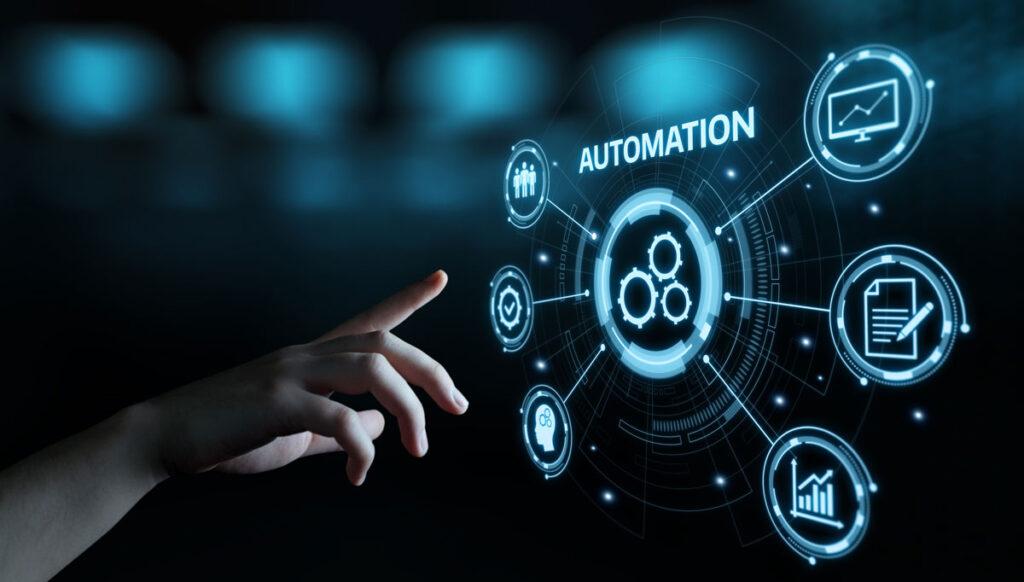Search Blog
Hit enter to search or ESC to close
Trending Now
The Future of Real Estate Photo Editing in 2024
- Get link
5 Mind-Blowing Tips for Portrait Photo Editing Services
- Get link
- Get link
Artificial Intelligence (AI) and humans are distinct entities but have an interconnected relationship in modern life. In many areas, AI has become a useful tool that helps humans work faster, more efficiently, and more accurately. However, many people question whether AI is replacing humans in certain fields in general and in real estate photography in particular and creating competition with human labor.

What is Artificial Intelligence (AI) ?
To whom it may concern, Artificial Intelligence (AI) is a field of computer science focused on studying, designing, and developing algorithms and computer systems capable of performing intelligent tasks that traditionally require human intelligence.
The formation and development of AI began in the 1950s when pioneering computer scientists started researching how to simulate human intelligence using computers. Early AI research concentrated on building simple computer programs to solve mathematical and logical problems.
However, with the advancement of techniques and technologies, AI has made remarkable real estate photo shooting and processing progress. AI systems have also been developed for automating tasks in manufacturing and enhancing marketing success for real estate agents and providers.
Great Potentials of AI in Real Estate Photography
Some believe that the development of AI will eventually lead to a complete replacement of humans. They argue that AI will be able to learn and evolve rapidly, surpassing human capabilities in acquiring and advancing knowledge.
This would render many current human jobs redundant, potentially replaced entirely by AI. Examples of AI’s benefits in real estate photography could be listed below:
- Prospering working efficiency
AI-powered cameras and drones can automate the process of capturing high-quality, standardized images of properties, ensuring consistency and efficiency. This can free up human photographers to focus on more creative and strategic aspects of the job.

- Driving buyer engagement
AI has demonstrated impressive capabilities when it comes to generating AI-powered cameras and drones can automate the process of capturing high-quality, standardized images of properties, ensuring consistency and efficiency. This can free up human photographers to focus on more creative and strategic aspects of the job.
- Creating consistency
AI can streamline the post-processing workflow by automating tasks such as image cropping, resizing, and basic editing, allowing real estate editors and photographers to maintain consistency
>> Read more: Impacts of AI in Real Estate Photography
Limitations of AI in Real Estate Photography
While AI can automate certain tasks, it currently faces limitations that prevent it from fully replacing the work of professional real estate photographers.
Current AI systems excel at tasks like image processing, object detection, and color correction. However, they struggle to match the creative vision and artistic flair that skilled human photographers bring to real estate photography. AI-generated photos may look technically proficient but lack the unique perspective and emotional appeal of human-shot images.
- Inability to Adapt to Changing Conditions: Real estate photography often involves capturing properties in different lighting conditions, weather, and settings. AI systems can have difficulty adjusting to these dynamic environments and may produce inconsistent results compared to an experienced human photographer who can adapt on the fly.
- Lack of Contextual Understanding: Effective real estate photography requires an understanding of the property, its features, and how to best showcase them to potential buyers. AI may struggle to comprehend the nuances and emotional aspects that a human photographer can intuit to create impactful images.
- Limitations in Post-Processing: While AI can assist with basic photo editing tasks, the more complex and subjective aspects of post-processing, such as image composition, color grading, and creative enhancements, are often better handled by skilled human editors.
- Difficulty Capturing Unique Perspectives: Experienced real estate photographers can utilize various techniques, such as drones, wide-angle lenses, and unique vantage points, to capture distinctive and captivating images of a property. Current AI systems may be limited in their ability to replicate these creative approaches.
- Lack of Interpersonal Skills: Real estate photography often involves interacting with clients, property owners, and other stakeholders. Human photographers can leverage their interpersonal skills to understand the client's needs, build rapport, and deliver a personalized service, which can be challenging for AI systems to replicate.
Integrating AI and Real Estate Photographers
Rather than a complete replacement, the future of real estate photography lies in the integration of AI and human expertise. AI can assist photographers by automating repetitive tasks, providing camera settings recommendations, and streamlining the post-processing and presentation of images. The combination of the photographer's creativity and the processing power of AI can result in a more efficient, cost-effective, and higher-quality real estate photography workflow.
The combination of the photographer's creativity, technical skills, and attention to detail, combined with the processing power and automation capabilities of AI, can result in a synergistic partnership that enhances the overall quality and effectiveness of real estate marketing materials.
Conclusion
While AI is undoubtedly transforming the real estate photography industry, it is unlikely to completely take over real estate photography expertise, as these possess unique traits such as flexibility, creativity, and emotional perception. We must recognize that AI is merely a support tool that needs to be used wisely and appropriately. The future of real estate photography lies in the synergistic partnership between AI and the skilled human photographer.
You May Also Like
Mastering the Art: How to Edit Real Estate Photos in Lightroom?
- Get link
The Future of Real Estate Photo Editing in 2024
- Get link
5 Mind-Blowing Tips for Portrait Photo Editing Services
- Get link




5 responses to “AI Will Replace Real Estate Photography Jobs – Is it True?”
[…] Useful Post: AI Will Replace Real Estate Photography Jobs – Is It True? […]
[…] technology continues to advance, artificial intelligence (AI) is making its way into the world of real estate photography. AI has the ability to analyze data, identify patterns, and make predictions, which can be […]
Great post and straight to the point. I am not sure if this is actually the best place to ask but do you guys have any
ideea where to get some professional writers? Thanks 🙂
Escape rooms hub
[…] AI Will Replace Real Estate Photography Jobs – Is It True? […]
Hello to every body, it’s my first visit of this website; this
weblog consists of remarkable and truly fine information for readers.